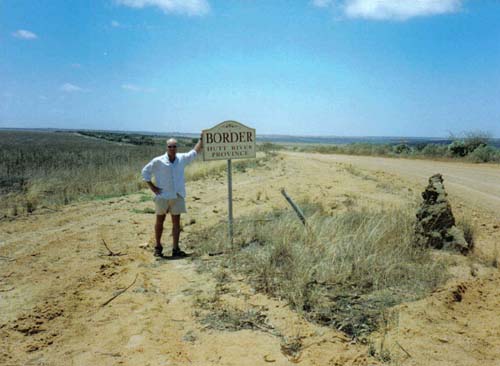
But, as you can see below, Will is still a very happy boy!

Just another tale about a "social neuroscientist" and his family as they adventure Down Under.
 We had some (unusual) significant rainfalls the last few days, which are finally putting the Brisbane dam levels above 40% (later today), the first time they have reached that level since 2005. There will be some easing of water restrictions, but nothing that will really matter until the dams reach 60%. With all this wet weather has come some cold temperatures, which have caused many of my colleagues to "rug up" like the girl in this photo. The max yesterday was around 14 C (57.2 F), which is frigid for longtime Queenslanders, most of whom don't have any real heat in their homes. As for me, I find this weather quite nice!
We had some (unusual) significant rainfalls the last few days, which are finally putting the Brisbane dam levels above 40% (later today), the first time they have reached that level since 2005. There will be some easing of water restrictions, but nothing that will really matter until the dams reach 60%. With all this wet weather has come some cold temperatures, which have caused many of my colleagues to "rug up" like the girl in this photo. The max yesterday was around 14 C (57.2 F), which is frigid for longtime Queenslanders, most of whom don't have any real heat in their homes. As for me, I find this weather quite nice!Tomorrow, the rain will shift further east and south as a trough heads towards the coral sea. Onshore winds will increase and continue feeding moisture into this trough. All in all residents of eastern QLD should take a brolly everywhere or they may just get soaked.
 How did so many people know about this? And, what was the attraction in visiting such an out-of-the-way place? I do think it's pretty cool that Australians have tolerated this whole enterprise. I suppose that any such move in the United States would quickly end up with some sort of stand-off with the FBI and ATF. If you happen to have visited the Principality of Hutt River, please leave me a comment. I think it would make an interesting holiday destination (check out the pictures at this fellow's website):
How did so many people know about this? And, what was the attraction in visiting such an out-of-the-way place? I do think it's pretty cool that Australians have tolerated this whole enterprise. I suppose that any such move in the United States would quickly end up with some sort of stand-off with the FBI and ATF. If you happen to have visited the Principality of Hutt River, please leave me a comment. I think it would make an interesting holiday destination (check out the pictures at this fellow's website):
Before you can start claiming for hospital services, you must be in your chosen cover for a set period of time, (known as a Waiting Period). Customers can only claim benefits after they have served their waiting periods. This is necessary to keep health cover fair. Waiting periods protect existing customers who pay premiums to a fund over time, for when they might need health cover. If we didn't have waiting periods, people might join a fund to claim for a planned item and then leave.That last sentence makes me wonder why this doesn't happen in the United States. That is, in the States there are no "Waiting Periods" (I think), so why doesn't this problem of people joining and dropping their coverage as soon as some procedure is completed exist there? I also like the middle sentence about "this is necessary to keep health cover fair." It captures the essence of many policies in Australia. There's a great emphasis on things being fair here that is best summed up by the belief in "a fair go" for everyone. (Here are a couple of interesting and contrasting takes on the Fair Go: here #1 and here #2). Perhaps it is this cultural value (one not widely shared in the U.S.) that underlies the Waiting Period. Then again, it doesn't explain why there are 15 variables to consider when choosing my mobile phone coverage.